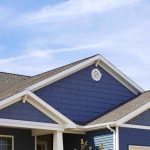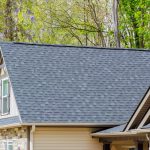Buying a new home can be quite overwhelming, especially with the countless things you need to consider before you can purchase one. You need to consider the cost and overall value of a new home, its square footage, as well as other details that might cost you in the long if you overlook them during the buying process.
One important thing you should take careful consideration with are your residential windows. There are many technologies and features that make windows more energy-efficient and improved in terms of aesthetics, durability, and functionality. When selecting new windows, the glass or glazing features, the frame materials, the gas fills and spacers, as well as the type of operation should be taken into careful consideration.
FRAMES
Improving the thermal resistance of a window frame can contribute to a window’s overall energy efficiency. There are certain advantages and disadvantages when it comes to all types of frame materials, but wood, vinyl fiberglass, and other composite frame materials offer greater thermal resistance than metal.
ALUMINUM OR METAL FRAMES
These frames are strong, light, and almost maintenance-free, but metal or aluminum metal frames also conduct heat rapidly, making metal a very poor insulating material. To lessen the heat flow, metal frames should come with a thermal break – this is an insulating plastic strip placed between the interior and exterior parts of the frame and sash.
COMPOSITE FRAMES
Composite window frames are made of composite wood products, such as laminated strand lumber and particleboard – some are even mixed with polymer plastics. These composite frames are stable, and they also have the same or even better structural and thermal properties as conventional wood. In addition, they also have better moisture and decay resistance.
FIBERGLASS FRAMES
Fiberglass window frames are known for its stability in terms of dimensions. They also have air cavities that can be filled with insulation that gives them superior thermal performance compared to uninsulated vinyl or wood.
WOOD FRAMES
Wood window frames do insulate very well, but they also require regular maintenance. Vinyl or aluminum cladding, however, reduces maintenance requirements. Metal clad wood frames, on the other hand, may have slightly lower thermal performance.
VINYL FRAMES
Vinyl frames are normally made of polyvinyl chloride (PVC) that comes with ultraviolet light (UV) stabilizers that keep sunlight from breaking down the material. Vinyl window frames do not require painting and they also have good moisture resistance. The hollow cavities of these frames can also be filled with insulation, making them thermally superior to standard wood and vinyl frames.





